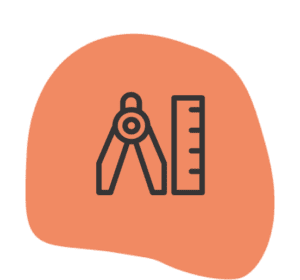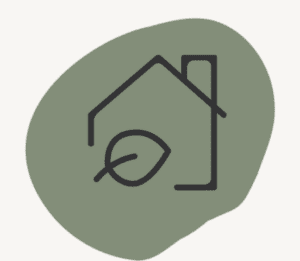To help drive the sustainability transition in the events sector, isla has been coordinating roundtable events, bringing eight UK venues and over forty event organisers together to better understand each other’s progress and challenges while increasing readiness and capacity for collaboration within and between these stakeholder groups.
Throughout the previous venue roundtable at the Business Design Centre in September 2023, participants agreed that enhanced data collection and reporting across the full range of environmental impacts is fundamental to event organisers for further development of their Net Zero pathway strategies, not least in helping to establish their initial emissions baselines. While some impact data is more accessible for organisers to access themselves directly, there remain multiple data streams for which venue collaboration is the primary or only means of access.
Last month’s roundtable at BMA House aimed to build on this sentiment, providing a deeper exploration of where venues already are in their data collection and communication journeys while giving organisers the opportunity to voice the specifics of what exactly they need and want from the venues in this area.
During this session, isla proposed developing a common framework for environmental data procedures across different UK venues to help collect, communicate, and continuously improve gaps. A number of potential benefits for both sets of stakeholders were outlined, while a range of venue challenges were acknowledged.
After further group discussion on this subject and the session’s conclusion, 87.5% of venue survey respondents and 90% of organiser respondents said that a common framework would benefit their sustainability strategy. 75% of venue respondents would be willing to help develop and trial such a framework in collaboration with isla, and 80% of organiser respondents expressed interest in providing feedback in this development process. Meanwhile, analysis of qualitative survey responses revealed that venues and organisers left the session with an increased appreciation of each other’s actions and barriers to date.
The positive response from both stakeholder groups suggests a recognition of the benefits and an appetite to collaborate on this project. isla aims to focus on this momentum by facilitating and steering further stakeholder-led framework development. isla will soon be reconvening participants to discuss the next steps.
Assessing the current data picture for venues and organisers
Ahead of the session, eight diverse UK venues were asked to self-assess their current practices around measuring and reporting environmental impact data to organisers. Venues were represented by isla members ACC Liverpool, Business Design Centre, ExCeL London, ICC Wales, Olympia London, Science Museum and Silverstone.
Each venue participant graded 17 different emissions categories on a five-point scale according to i) how robust they felt their measurement is today and ii) whether they offered this data to their clients as standard, on request, or not at all. All venues agreed to contribute their assessments to the room of organisers. They were then given the opportunity to explain some of their more advanced areas of data collection and communication.
Organisers were then able to describe their experiences of requesting and receiving environmental data from venues thus far, setting up nicely for the final first-half exercise in which venues had a chance to respond directly by explaining their reasons for limitations in different emissions categories.
There are numerous challenges in environmental data provision from venues
Between isla members and the venue participants, nine barriers to improvement in emissions data collection and communication were identified during the session:
- Venue Infrastructure
- Knowledge/expertise limitations
- Human/time resource limitations
- Department coordination limitations
- Supplier coordination limitations
- Data privacy issues
- Data held by venues but not offered or requested
- Holding data on a venue level but not on an event level
- Emissions category perceived as not applicable or relevant
The venue self-assessments indicated:
- Overall, venues hold and communicate more data on catering, energy, and waste than travel and transport.
- 50% of the participants cited venue infrastructure as a barrier to energy data.
- Human resources came up as a barrier for half of the participants in at least one catering category and for almost half of the participants in energy categories.
- While Data Privacy was referenced, only 25% attributed this barrier to accommodation and 13% to audience travel.
- 38% of participants cited supplier coordination as an issue across transport categories, including venue staff travel, venue supplier transport and audience travel.
- 63% of participants said they already held certain environmental data streams that they do not currently offer to organisers and that organisers rarely, if ever, request. This data mainly covered F&B serve ware, venue staff travel, venue supplier logistics, and audience travel, representing a significant opportunity to expand the categories of sustainability data communicated by venues.
Overall, the group agreed that the challenges and barriers presented significant growing pains, requiring venues to take a phased approach to a more standardised data collection and reporting. Most venue participants also expressed that overcoming this complexity would require an internal staff member or team dedicated to collecting and compiling sustainability data.
Organisers, meanwhile, are starting to learn more and more about which environmental data streams they can expect from venues and what they can ask for, helping to foster a growing alignment across the industry.
Participants agreed that it is important to start that journey as soon as possible if they haven’t already. While a common best practice approach will not manifest overnight, by working together, venues and organisers can find a way forward that will facilitate more accurate and comprehensive environmental data reporting, laying the groundwork for a more strategic sectoral transition towards sustainability.
VSEEDE (Venue System for Enhanced Environmental Data Exchange)
In the second half of the session, isla proposed the development and trial of a common framework for environmental data procedures across different UK venues to increase alignment around:
COLLECTION: Foster consensus on which environmental datasets you are responsible for gathering within the boundaries of your venue, then actioning their collection.
COMMUNICATION: Positively influence external stakeholders and facilitate their sustainability strategies through sharing and contextualising data.
IMPROVEMENT: Identify and continuously improve gaps in data gathering and reporting.
isla laid out several potential benefits of the tentatively titled VSEEDE for both stakeholder groups:

Venues and organisers were then mixed for an initial discussion on the finer details of which types of environmental information organisers would like to receive from venues, which formats they would prefer to receive it in (and when), and who within each venue is, or could be, responsible for collecting and communicating this information. Participants also emphasised the necessity of involving other stakeholders, including suppliers, for a comprehensive approach to reporting.
Overall, the roundtable was a positive step forward. By sharing experiences and discussing challenges, the group identified opportunities for improvement and started the journey to standardised reporting.
While there are still significant challenges to overcome, the roundtable showed a strong commitment among venues and event organisers to move towards more strategic monitoring and reduction of the industry’s environmental impact through enhanced data exchange, ultimately resulting in a more sustainable future.
Going forward, we aim to facilitate further development of this shared framework with the support of UK venues and stakeholders.
Are you interested in learning more about becoming an isla member? Get in touch.
Our latest news













